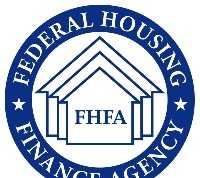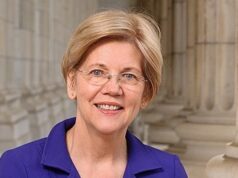Atlanta-Based Federal Home Loan Bank Upped Cash Flow to Countrywide by 77 Percent In Third Quarter
WASHINGTON, DC — With Countrywide Financial Corp. increasingly turning to the Federal Home Loan Bank (FHLB) system for cash advances to stay afloat as other liquidity sources shun the company, U.S. Senator Charles E. Schumer (D-NY) urged the overseer of the federally-supported bank network to probe the underlying risk of Countrywide’s collateral and to issue new, system-wide regulations to reduce the banks’ exposure to risky or predatory loans.
“Countrywide is treating the Federal Home Loan Bank system like its personal ATM,” Schumer said. “When Congress created these banks, it never intended for them to be used to prop up mortgage lenders that specialized in deceiving borrowers. At a time when Countrywide’s mortgage portfolio is deteriorating drastically, FHLB’s exposure to Countrywide poses an unreasonable risk.”
As the Wall Street Journal reported Monday, Countrywide has increasingly relied on the FHLB system for cash flow as the mortgage market downturn continues to batter one of the industry’s top peddlers of high-risk home loans. While other banks have also increasingly relied on the FHLB system, none have done so with more haste than Countrywide. Through the first three quarters of this year, Countrywide’s advances from the Atlanta-based FHLB bank had soared 81 percent, to a total of $51 billion. That represents nearly 40 percent of FHLB Atlanta’s total advances, according to the bank’s latest SEC filing—a potentially dangerous level of exposure considering Countrywide’s track record in poor underwriting and predatory lending practices in recent years. Countrywide’s stock has plummeted 80 percent since the start of the year and just this August, Countrywide had to tap into an emergency $11.5 billion line of credit.
To secure its advances from FHLB Atlanta, Countrywide has posted $62 billion worth of loans as collateral. Schumer pointed out that there is adequate reason for worry that Countrywide’s collateral poses a higher risk than other banks. As of September 30, over one-third of the loans held for investment by Countrywide Bank were payment-option adjustable-rate mortgages (“option ARMs”), one of the most exotic varieties of risky home loans in the industry. Also, according to published reports, a startling 91 percent of option ARMs the company originated in 2006 and 2007 were low-documentation. Moreover, the company reported that 89 percent of their 2006 originations of option ARMs did not conform to the joint banking regulators’ guidance, which increases the likelihood that Countrywide is pledging loans deemed unsuitable or predatory by the regulators as collateral for FHLB advances. Also, delinquencies on Countrywide’s option ARMS are skyrocketing, jumping nearly 75 percent in the last quarter alone.
In a letter to the chairman of the Federal Housing Finance Board (FHFB)—the regulatory agency for the 12 FHLB banks—Schumer urged the agency to study whether Atlanta’s exposure to Countrywide’s collateral poses an undue risk to the FHLB system. He also called for the regulator to consider preventing any further or continuing overnight advances based on collateral that does not meet the guidance issued earlier this year by the Federal Reserve Board—and adopted by other federal financial regulators such as the Office of Thrift Supervision and the Federal Deposit Insurance Corporation—concerning exotic home loans. Incorporating the joint regulators’ guidance would effectively prevent the FHLB banks from accepting the highest-risk varieties of mortgages—including the option ARMs that Countrywide made its specialty—as collateral to secure advances. This could provide further incentive for banks like Countrywide to modify their riskiest loans to safe, affordable and sustainable loan products for their borrowers.
Earlier this year, FHFB officially informed the home loan banks of the joint federal guidance, but did so on a non-binding basis. This has essentially left it up to the individual FHLB banks to determine its own policies on what does and does not qualify as adequate collateral. Schumer said the standards should be tightened and made uniform.
The FHLB system was chartered by Congress in 1932 to support neighborhood banks by serving as a lender of last resort. Today, the 12-bank system services approximately 8,000 member institutions.

















